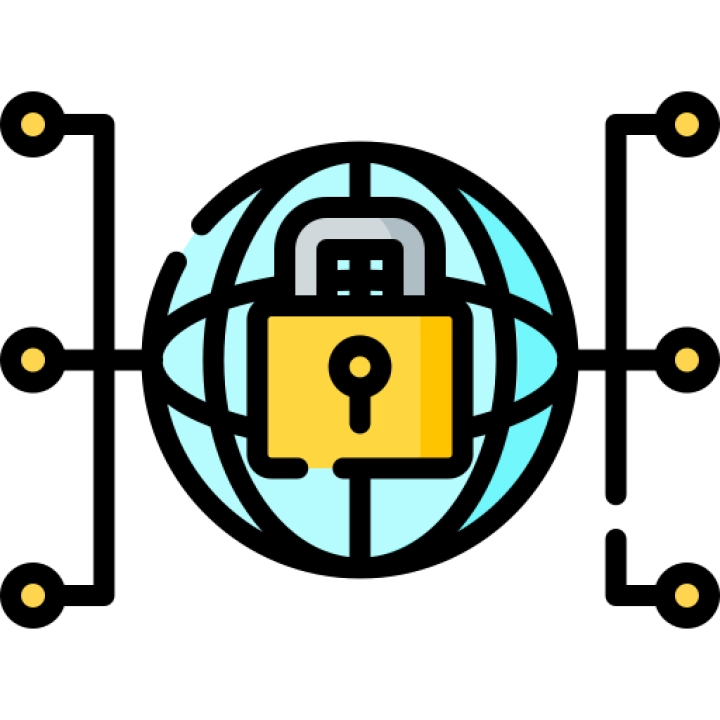Technology of Information Security: A Complete Guide
Information Security (InfoSec) Technology focuses on protecting digital data, systems, and networks from cyber threats, breaches, and unauthorized access. It combines cybersecurity principles, encryption, risk management, and cutting-edge tools to safeguard organizations in an increasingly digital world.
1. Core Areas of Information Security Technology
| Domain | Focus | Key Technologies/Tools |
|---|---|---|
| Network Security | Firewalls, intrusion detection/prevention (IDS/IPS) | Cisco Firepower, Palo Alto Networks |
| Cryptography | Encryption (AES, RSA), digital signatures | OpenSSL, PKI, Hashcat |
| Endpoint Security | Antivirus, EDR (Endpoint Detection & Response) | CrowdStrike, Microsoft Defender |
| Cloud Security | Securing AWS, Azure, and hybrid clouds | CSPM tools (Prisma Cloud, Wiz) |
| Threat Intelligence | Analyzing cyber threats, malware, APTs | MITRE ATT&CK, VirusTotal, SIEMs |
2. Career Paths in Information Security
| Role | Responsibilities | Average Salary (USD) |
|---|---|---|
| Security Engineer | Designs and implements security solutions | $90,000 – $150,000 |
| Penetration Tester | Ethical hacking, vulnerability assessments | $80,000 – $130,000 |
| SOC Analyst | Monitors and responds to security incidents | $70,000 – $120,000 |
| CISO (Chief Information Security Officer) | Leads enterprise security strategy | $150,000 – $300,000+ |
| GRC (Governance, Risk, Compliance) Specialist | Ensures regulatory compliance (GDPR, HIPAA) | $85,000 – $140,000 |
3. Essential Skills for InfoSec Professionals
✔ Technical Proficiency – Firewalls, SIEMs (Splunk, LogRhythm), malware analysis.
✔ Risk Assessment – Identifying vulnerabilities (CVSS scoring, NIST frameworks).
✔ Programming/Scripting – Python, Bash, PowerShell for automation.
✔ Incident Response – Handling breaches (ransomware, DDoS attacks).
✔ Soft Skills – Communicating risks to non-technical stakeholders.
4. Education & Certifications
- Degrees:
- Bachelor’s in Cybersecurity, Computer Science, or IT.
- Master’s in Information Security (e.g., Georgia Tech’s MS Cybersecurity).
- Certifications:
- CISSP (Certified Information Systems Security Professional) – Gold standard for senior roles.
- CEH (Certified Ethical Hacker) – For penetration testers.
- CompTIA Security+ – Entry-level credential.
- OSCP (Offensive Security Certified Professional) – Hands-on hacking certification.
5. Emerging Trends (2024)
🔐 AI-Powered Security – Machine learning for anomaly detection (Darktrace).
🔐 Zero Trust Architecture – "Never trust, always verify" models (BeyondCorp).
🔐 Quantum Cryptography – Post-quantum encryption standards (NIST’s CRYSTALS-Kyber).
🔐 Ransomware-as-a-Service (RaaS) – Rising need for proactive defense strategies.
6. Challenges in InfoSec
⚠ Skills Gap – Shortage of qualified cybersecurity professionals.
⚠ Sophisticated Attacks – AI-driven phishing, deepfake social engineering.
⚠ Regulatory Complexity – Navigating GDPR, CCPA, and sector-specific laws.
Is Information Security Technology Right for You?
✅ Choose this field if:
- You enjoy problem-solving under pressure (e.g., breach containment).
- You want a high-demand career (3.5 million unfilled cybersecurity jobs globally).
- You’re curious about both defense and offense (ethical hacking vs. blue teaming).
❌ Reconsider if:
- You dislike continuous learning (threat landscapes evolve daily).
- You prefer non-technical roles (though GRC offers a policy-focused path).
InfoSec is critical for every industry—from healthcare to finance—making it a future-proof career with competitive salaries and global opportunities.
Need guidance on certifications, entry-level paths, or specialization areas? Ask away! 🔒💻

